The Best Games for Memory Loss
Games can help slow memory loss by stimulating cognitive function and enhancing recall. From puzzles and word games to interactive apps, discover the best activities designed to keep the brain engaged, improve focus, and support those with memory decline.

One of my favorite memories as a child were the games we played with my grandmother and cousins. It was such an important part of our lives. Our favorite game was a board game, Tripoli. We played word games like Scrabble.
My mother and grandmother loved to play cards. My mom used to raise money for the church hosting card games. Over time, we played many other board games, like Yahtzee and Monopoly.
While we were having fun, we are doing more than just a game, we were actually nurturing our imagination, improving our ability to listen and learn. It was also a fun way to improve cognitive functioning. Brain games are vital to the young and old. Mental stimulation improves our memory recall. Playing your favorite board games, or even a jigsaw puzzle while you enjoy playing, encourages social activity, builds memory recall, and can help delay the onset of Alzheimer's disease.
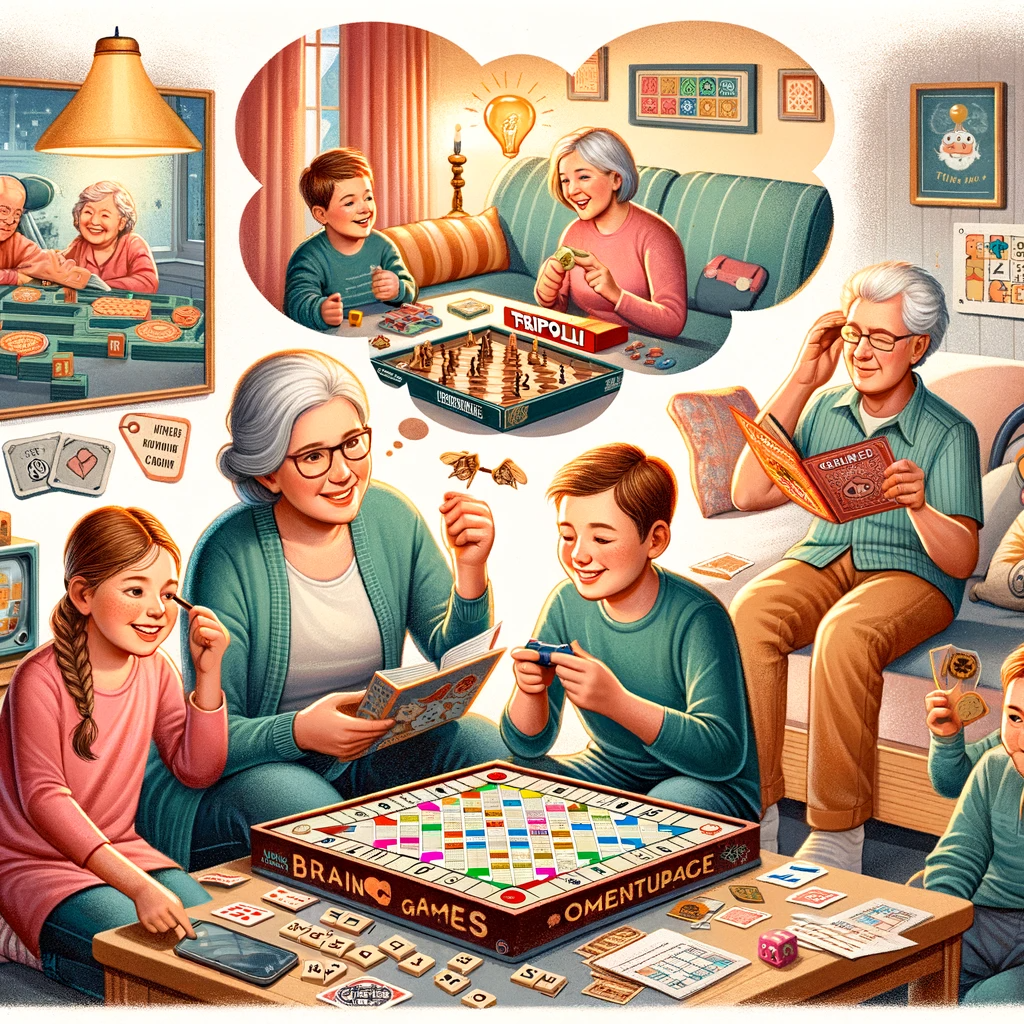
Understanding Memory Loss and Aging
Memory loss is a common condition that affects many seniors, and it can stem from various factors, including age-related changes, medical conditions, and lifestyle choices. As we age, it’s normal to experience mild cognitive impairment, which can manifest as occasional forgetfulness or difficulty concentrating. While this is a natural part of aging, it’s important to recognize that it can sometimes be a precursor to more serious conditions like dementia and Alzheimer’s disease.
Understanding the nature of memory loss and the benefits of memory care games can be incredibly empowering for both seniors and their caregivers. These games are not just about having fun; they play a crucial role in slowing down cognitive decline and improving overall cognitive function. Engaging in brain training games can promote social interaction, reduce feelings of loneliness and isolation, and enhance the quality of life.
Early detection and intervention are key. By incorporating memory games into daily routines, seniors can maintain their cognitive health and enjoy a more fulfilling life. Whether it’s through simple card games, jigsaw puzzles, or more complex brain games, these activities can make a significant difference in preserving cognitive abilities and delaying the progression of memory loss.
Have You Played Memory Games Before?
Everyone has played some sort of memory game in our life. What most people don’t understand is your brain is like a muscle. You should exercise it everyday. Mental exercises are as important as physical exercise to improve our attention span and cognitive activity.
Older adults that practice mental exercise help keep your mind sharp for a longer period of time as we age. You should include brain games to prevent cognitive decline and delay the onset of Alzheimer's disease in your dementia prevention plan.
When someone has Alzheimer’s disease or another type of dementia they may have trouble with memory, thinking, reasoning, or even language. Losing these skills can make it difficult for dementia patients to perform their day-to-day activities.
Games can Improve Cognitive Function
Did you know that simple games for a dementia patient, such as spot the difference, using playing cards and even doing a crossword puzzle can improve cognitive function?
These games require participants to use their cognitive skills to finish the game, while developing key memory skills. When I became an adult, and my grandmother was in her 90’s we still played games when I came to visit.
My grandmother developed dementia in her 90s. And I am sure the games we played over the years, helped keep her delay her cognitive decline as she got older. In the later stages of her dementia, we sat with her and did jigsaw puzzles, or another puzzle game, which helped delay the progression of Alzheimer's disease. It was a social activity that we did together, just to visit with her.
There are no right games for dementia patients in the later stages. We played my grandmothers favorite games, when we spent time with her. She was not able to actively participate, but in the late stages of Alzheimer’s disease it is about trying to make a connection, even if it is a fleeting moment. Elderly people that have Alzheimer’s disease lose their ability to remember familiar people. When they do remember you it is such a gift.
I’m going to share a story with you. My grandma was admitted to the hospital to have her pacemaker replaced. I was living out of state at the time. I flew in and went to the hospital to be there for my grandma. My entire family told me to lower my expectations, she wouldn’t know me. She was not remembering any of her regular visitors.
I sat at my grandmother bedside, and as she was waking up, she looks over at me and said, you look like my Diane. I responded I am your Diane. I was so excited. It was a fleeting moment of connection. Anyone that lives with a person with Alzheimer’s disease or other type of dementia lives for those moments.
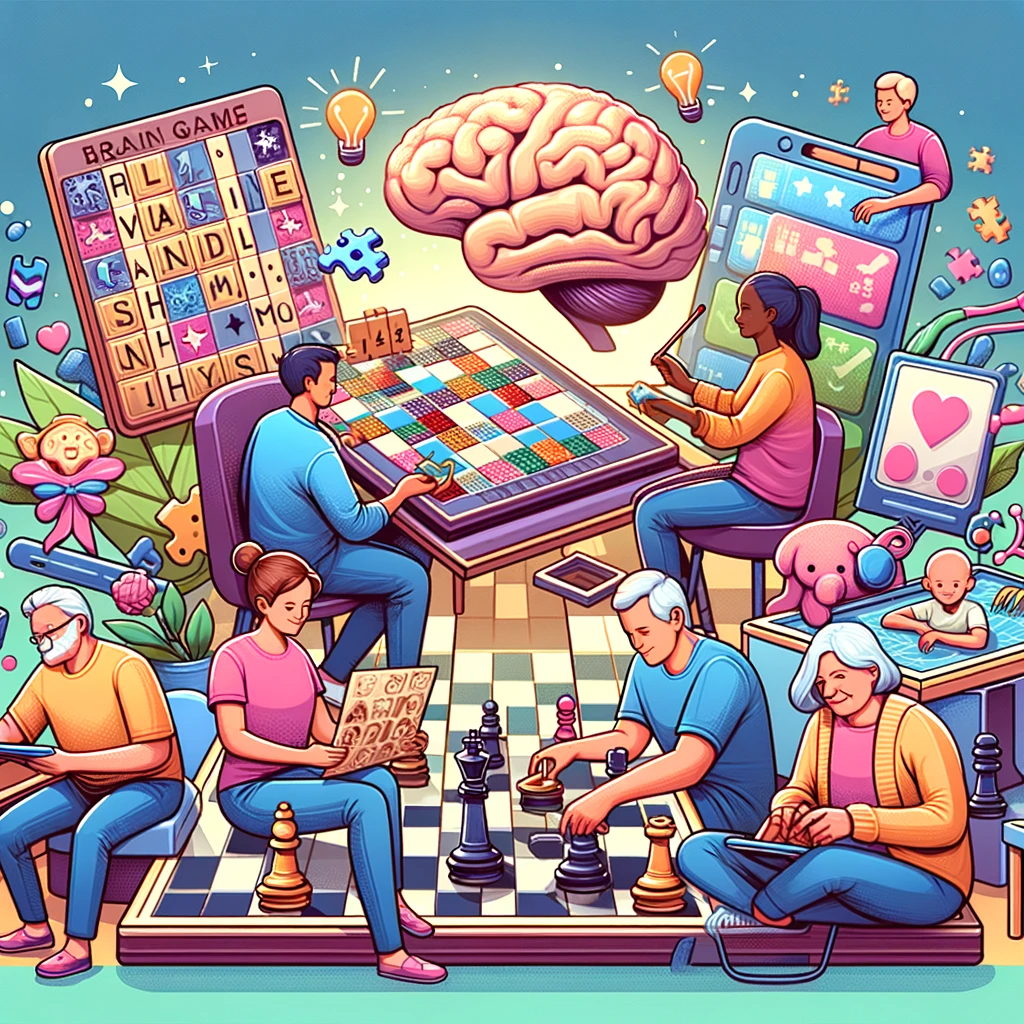
How do games for elderly with dementia help?
Cognitively stimulating activities improve other brain functions in older adults. These functions are ability to pay attention to detail. Helps us learn to concentrate, and focus on the goals of the game. Of course, we were all focused on winning the game. Playing these complex games helped to develop critical thinking skills and delay the onset of Alzheimer's disease.
When I played with my siblings, I had to makes sure they weren’t cheating too.
Mental exercises improve visual recognition and hand eye coordination. Simple games based on spotting the differences, or find similar objects and matching games improve our ability to focus and improve visual discrimination. If you play these types of games it improves our speed at processing distinguishing one image from another.
Brain games for people with dementia can improve short term memory
Playing these types of simple games often will not only improve short term memory, but, it can improve long term memory too. Improving short term memory, and improving long term memory are linked. It helps the brain create neural pathways that move short term memories into the long term memory region of the brain. This helps us to improve learning in other areas, as well.
Playing games, like board games or card games, with dementia sufferers can give the short term memory a boost. Games the require a person to plan their next move, thinking ahead and plotting improve cognitive abilities .
As we get older we focus on other priorities. Many dismiss recreational activities, as we focus on work, home repairs and less entertaining parts of our lives. Recreational activities shouldn't be dismissed.
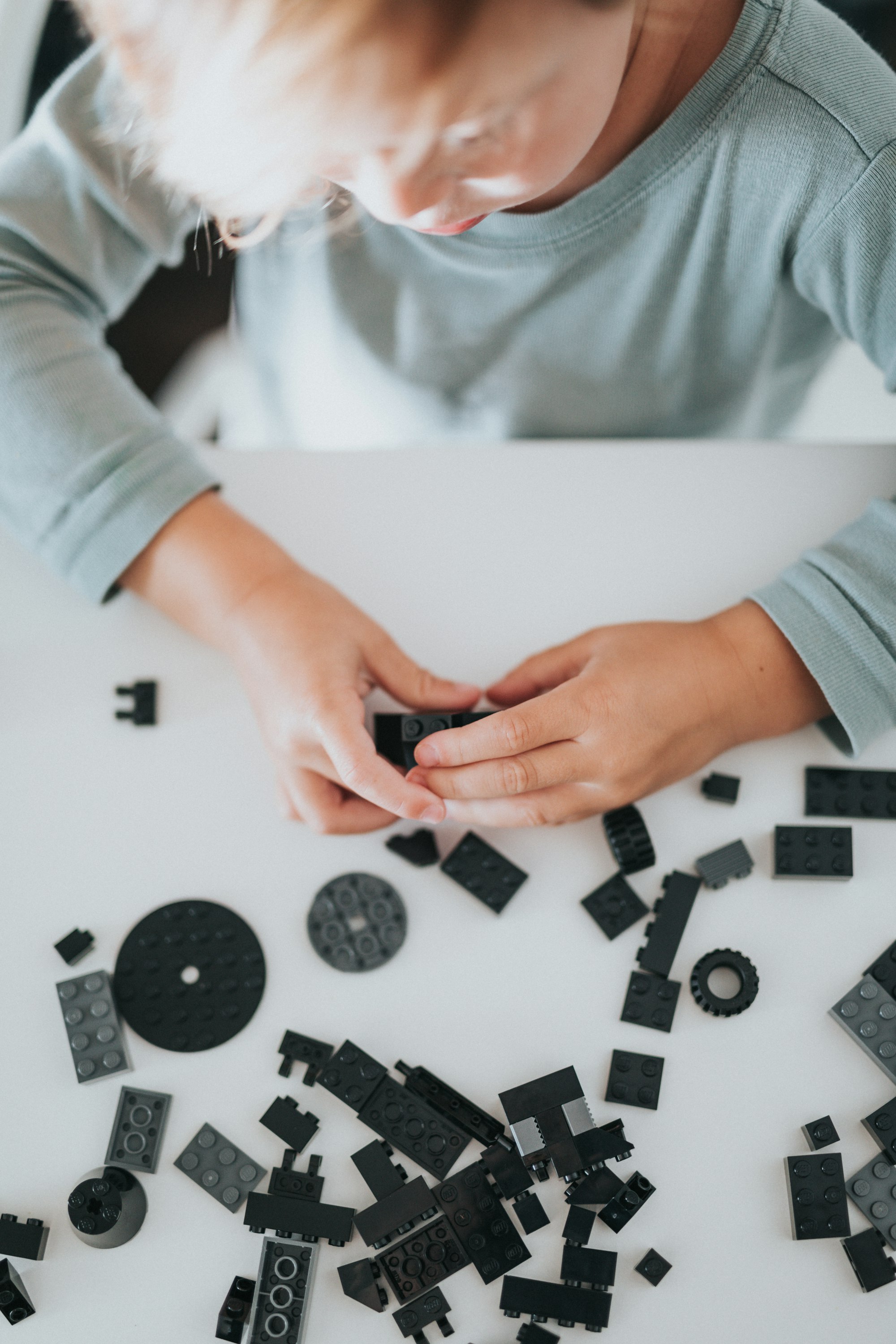
Playing Games Helps Maintain Memory Recall
There are many benefits to maintaining memory recall by playing games. Developing dementia is not a normal part of aging. We may slow our ability to process the information as quickly as we did when we were younger. Brain training, such as word puzzles, matching game, and even playing cards keep the brain sharp and working at its optimal level
There are millions of intelligent individuals over the age of 65 years old. Focusing on mental stimulation to prevent decrease in your working memory reduces the progression of conditions like Alzheimer's disease and other types of dementia.
Playing new games is a great idea to improve your sense of well being. Finding an appropriate activity for a dementia patient in the early stages can help delay the progression of the disease.
Good brain health helps seniors maintain their maximum level of independence.
Games help us to maintain or strengthen cognitive functions like the ability to understand ideas, grasp concepts and perform simple tasks. Who knew that playing board games, or card games, over even online games would improve cognitive function.
Games for dementia prevention help us to store information and retrieve it when we need that information. Games for dementia patients can help to improve the ability to remember interactions with others as well as remember and retrieve the rules of the game.
Our cognitive abilities grow stronger over time. Until we reach 50 yrs old. Then our thinking processes slow down. This results in changes in our behaviors and decreased brain functions. These brain functions include decreased in ability to pay attention, decreased understanding, reduced thinking capabilities resulting in difficulty with tasks and memory.
Include Games, even Brain Games into your Dementia Prevention Plan
One of the best ways and definitely the most fun way to reduce the decline of our thinking abilities is to include playing mental games in your daily routine.
Brain games for seniors with dementia can actually exercise your brain the way physical activity exercises you body. The more you play, the better your memory will be. When you practice brain training, this allows the neuroplasticity to work as its meant to. Neuroplasticity is the ability of the brain to form and reorganize connections between neurons.
Benefits of brain training is the brain's working memory. That is the region of short-term memory that focuses on our ability to understand concepts. It is also the region that processes languages faster. Studies show that individuals that regularly train by playing cognitively stimulating activities, resulted in the benefits of increased attention and the ability to focus.
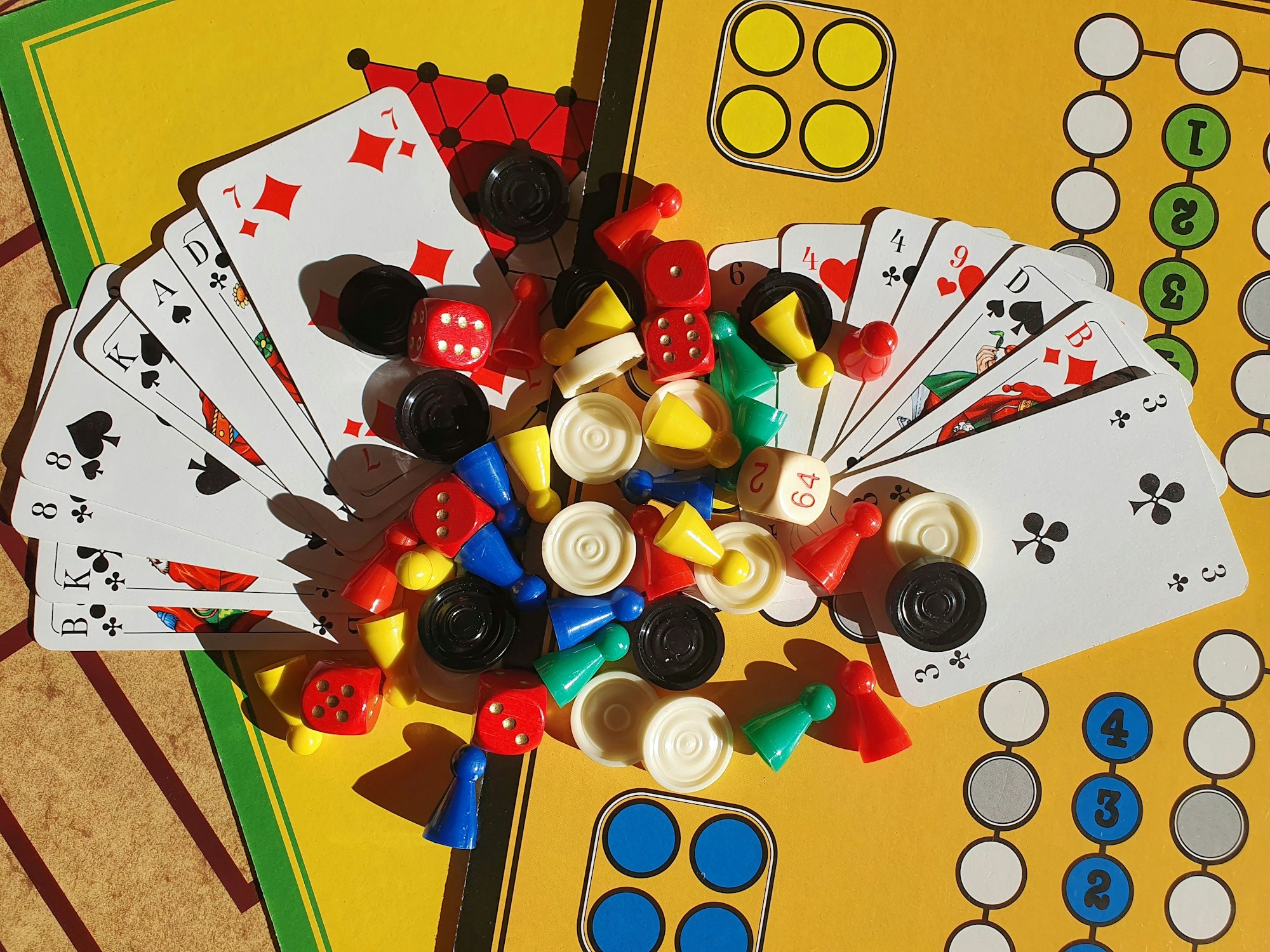
Board games for dementia, or video games to slow loss of cognitive skills
Board games for dementia , or video games to slow loss of cognitive skills, stimulate your brain in different ways. Jigsaw Puzzles, word based games, electronic games, or other favorite game, all impact different areas of the brain.
Depending on the game, you train your brain in different areas. Games that spot the difference, or match games that require you to recall from memory where the match is located, affect different areas of the brain that require concentration and thinking.
If you play a board game that requires multiple players to participate, this forces you to focus on the other players and their moves , as well as your own. This increases your cognitive activity while having fun doing it.
It doesn't matter what game you are playing, the result will always improve your memory functions. Don't avoid games because you are unfamiliar with the rules. That s a plus.
If you play games with others, you will have fun being social and working your brain. Being social is so important to a preventing or even slowing the progression of disease and cognitive decline.
Word Games and Puzzles
Word games and puzzles are fantastic tools for seniors looking to enhance their memory and language skills. These activities require recalling words, solving puzzles, and engaging in mental exercises, making them excellent for cognitive stimulation. Whether played individually or in a group setting, word games and puzzles promote social interaction and mental engagement.
Examples of word games and puzzles include crosswords, Sudoku, and word searches. These games challenge the brain, helping to improve cognitive function and slow down cognitive decline. They also provide a sense of accomplishment and can be a fun way to spend time with friends and family.
Incorporating word games into your daily routine can be a simple yet effective way to keep your mind sharp. These activities not only improve cognitive abilities but also offer a great opportunity for social interaction, which is essential for overall brain health. So, grab a crossword puzzle or a Sudoku book and start exercising your brain today!
Visual and Sensory Games
Visual and sensory games are designed to stimulate the senses and enhance memory through engaging sensory experiences. These games involve multiple senses, such as sight, hearing, touch, and sometimes even taste or smell, to create a rich and stimulating environment for cognitive development.
By incorporating different sensory stimuli, seniors can enhance their memory recall and overall cognitive abilities. Examples of visual and sensory games include sensory walks, where participants engage with their environment through sight and sound, and sensory games with scents, which can trigger memories and improve cognitive function.
These activities not only promote mental stimulation but also encourage social interaction. Engaging in sensory games with others can be a delightful way to connect and share experiences, making them a valuable addition to any memory care routine. So, whether it’s a sensory walk in the park or a game that involves identifying different scents, these activities can significantly boost cognitive health and memory recall.
Creating a Game Routine
Establishing a regular game routine is an essential part of memory care for seniors. By incorporating memory care games into their daily lives, seniors can experience consistent cognitive stimulation and engagement. A well-planned game schedule promotes consistency and maximizes the benefits of these activities.
Creating a game routine involves selecting a variety of games that cater to different cognitive skills and interests. This could include a mix of word games, puzzles, visual and sensory games, and even virtual reality games. The key is to keep the routine varied and engaging to prevent boredom and ensure that all areas of cognitive function are being exercised.
Incorporating social interaction into memory care games is also crucial. Playing games with friends or family members can enhance the experience, providing emotional support and reducing feelings of isolation. Adapting games to individual needs ensures that seniors feel empowered and motivated to actively participate, making the routine both enjoyable and beneficial.
By establishing a regular game routine, seniors can maintain their cognitive health, improve memory recall, and enjoy a higher quality of life. So, start planning your game schedule today and make brain training games a fun and integral part of your daily routine.
So what are the best games for dementia patients?
There are a variety of activities that could be classified as “brain training games.” These are activities that stimulate your brain. Each different brain training games can improve different thinking functions like memory, problem solving, and critical thinking. Each new game develops a different thinking skill.
The best games improve our critical thinking and problem solving skills include crossword puzzles, chess, Sudoku, or bridge, or jigsaw puzzles.
Some of the most popular card games like solitaire or multiplayer games like cribbage or canasta can help your brain boost memory function.
Board games for dementia patients are also a good option for improving memory functions. Some great choices include scrabble, chess, dominos, bingo, or monopoly. These are all multiplayer games, adding a social interaction to your brain training games. You have double the benefit of dementia prevention or slowing the progression of dementia when you pay with friends. Never underestimate the power of human connection.
According to the American Psychological Association, the older adult begins to see cognitive decline in processing the information, called perceptual speed in their 20's and 30's. This means that our speed for comparing symbols, figures, or numbers slows as we age.
For individuals that participate in memory or brain training games for a few hours a week have experienced lasting benefits.
Research suggests that once individuals learn to have better control over their attention and can improve their processing abilities; they can apply what they learned from the memory games into day-to-day activities.
Brain training games improve cognitive function. One of the best ways to build up our working memory as we age is combine mental exercise with regular physical exercise, eating a healthy diet, and getting adequate of sleep, practicing stress management techniques and regular social interaction with others.
The hippocampus is the brain's memory storage region. In elderly people over the age of 90 may develop a dementia as the hippocampus weakens. Physical exercise, of moderate intensity of 30 minutes a day, can increase blood flow to the hippocampus area.
Games for dementia prevention can improve your thinking abilities. Try to maintain a well rounded and healthy lifestyle by mixing up the type of memory loss prevention activities to keep your brain stimulated and keep our working memory working well.
Helpful suggestions to avoid Alzheimer's disease include: doing something new and different everyday is the key to keeping the brain fit. If you become good at an activity, your brain becomes less stimulated by that activity. Its like your brain become builds up a tolerance for that activity. I think that the brain becomes bored and really wants something new to keep it fit.
So, if you are good at a familiar game like Sudoku or crossword puzzles, change it up and try a board game.
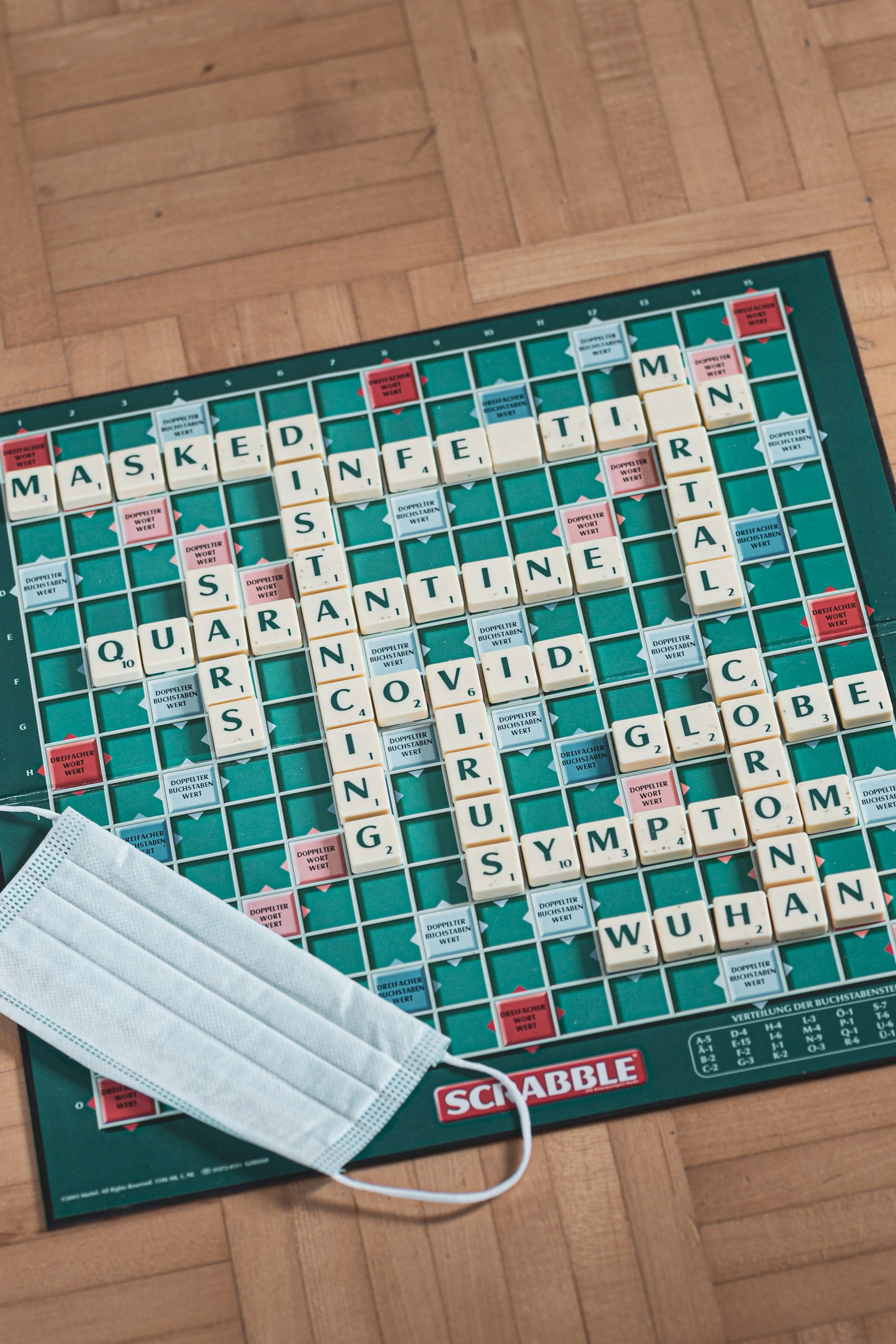
Here are the best games for preventing memory loss
Word puzzles focus on language skills. Can improve cognitive area in verbal learning, memory, speed, and more.
Jigsaw puzzles particularly beneficial for memory and reasoning. More complex puzzles will also involve hand eye coordination and memory recall.
Dice games help improve math skills and problem solving
Card games improve skills such as reasoning, problem solving, memory, and concentration:
Board games can help with cognitive functions such as memory, communication, and emotional regulation.
Video games are customized to specifically target different cognitive abilities, such as memory and reasoning.
My grandmother lived to be 97 yrs of age. She developed later stages of dementia.
My grandmother worked out to Jack Lalane every day. He's an exercise guru long before we heard of Richard simmons, or Jane Fonda. My grandmother was before her time. She ate a Mediterranean diet, walked every day and played games several times a week. She was a great role model on how to age gracefully.
You might also like this article:
Our Resources section can help you find the information and tools that you need. We have courses, videos, checklists, guidebooks, cheat sheets, how-to guides and more.
You can get started by clicking on the link below. We know that taking care of a loved one is hard work, but with our help you can get the support that you need.
Click here to go to Resources Section now!





